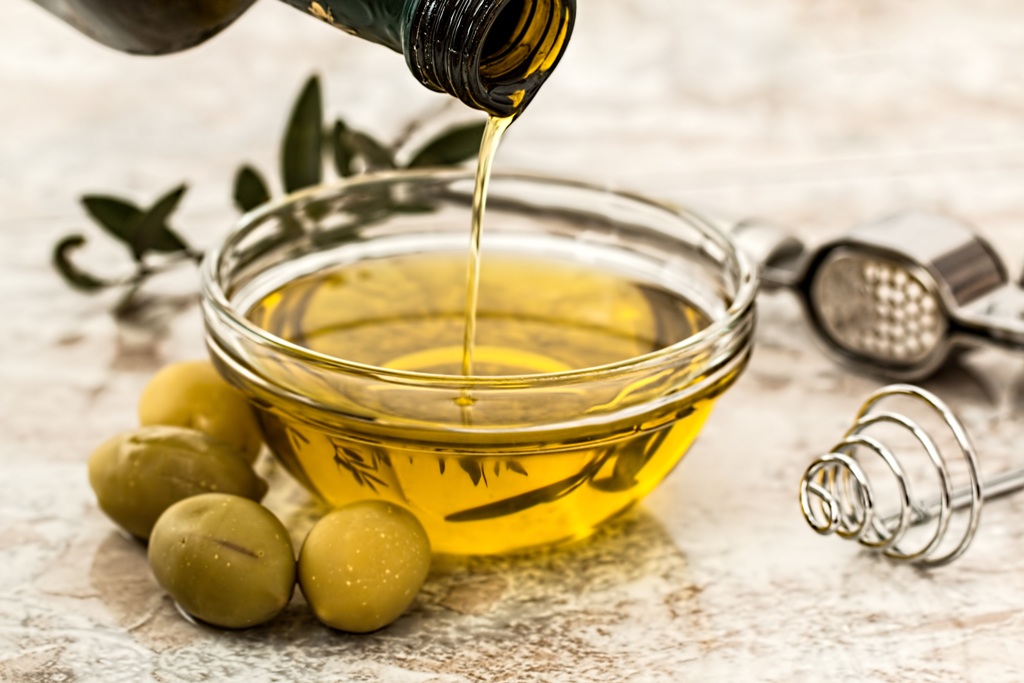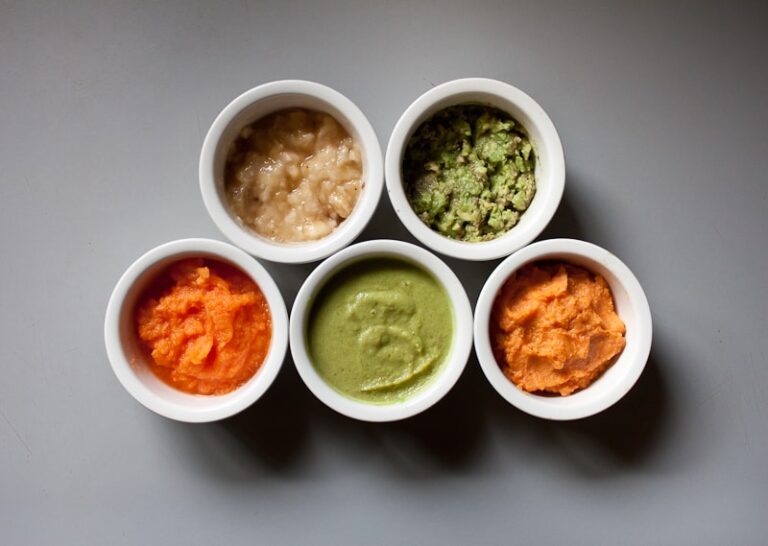4 Best Cooking Oils for Clean Eating
This post contains affiliate links. This means I receive a small commission from sales of certain items, but the price is the same for you.
Fats have been demonized for years by mainstream medical parties and in turn, the information highway. For many years, I have learned so much about our bodies actually need, and it turns out–surprise, surprise–we need fats to thrive!
Oils in our kitchens that are used for cooking will fall under the fat category, but not all cooking oils are created equal. Growing up, we definitely had the conventional fats or oils in the kitchen: vegetable oil, canola oil, shortening and butter. I kept these same oils in my kitchen for the first few years of being married. Sometime in 2012 is when I was introduced to the dangers of these conventional oils and that finding some replacements was paramount.
Being newly married and both hubby and I only working part-time jobs, you can imagine that I was the frugal queen when it came to what I was buying for food. Even then, I cooked from scratch (I’ve never been a pre-packed meal person) but the quality was definitely lacking. So it was a big step for me to spend a bit more money on higher-quality cooking oils that didn’t come in giant jugs!
Education behind food is what hooked me back then into learning more about how to be healthy in the kitchen. Over the following years, I figured out a few cooking oils that I will use forever in my kitchen. AND, bonus points for these oils is that they are often multipurpose items for some cleaning recipes and especially useful in beauty rituals!
What is Healthy Fat?
Each type of fat and healthy oils give us unique benefits to our bodies. Healthy fats not only help with satiety between meals, they are also well documented in helping lower cholesterol and in boosting brain function. Many people who utilize the Ketogenic diet have noted that they their brain fog goes away because your brain is being “fat-fueled” (and our brains are made up of a large amount of fat).
Now, there IS an important distinction that has be known about the kind or quality of fats we should be consuming and ones we shouldn’t. Opt for foods naturally high in healthy fats and that are unprocessed. Avoid highly-processed fats and oils that been created with chemicals and are filled with additives you can’t pronounce.
My rule of thumb (as you will come to know) is it should be as close to nature as possible!
Why You Should Switch to Healthier Oils
In the spirit of clean eating and real food, utilizing healthy oils and cooking fats in the kitchen is a no-brainer. Healthy fats give us fat-soluble vitamins, fatty acids, aid in weight loss and boost hair, skin and nail health.
Personally, I love having the peace of mind that I’m using a healthy oil for my cooking. I know exactly what is going in my food and that it is serving my body well, not negatively.
4 Best Cooking Oils for Clean Eating
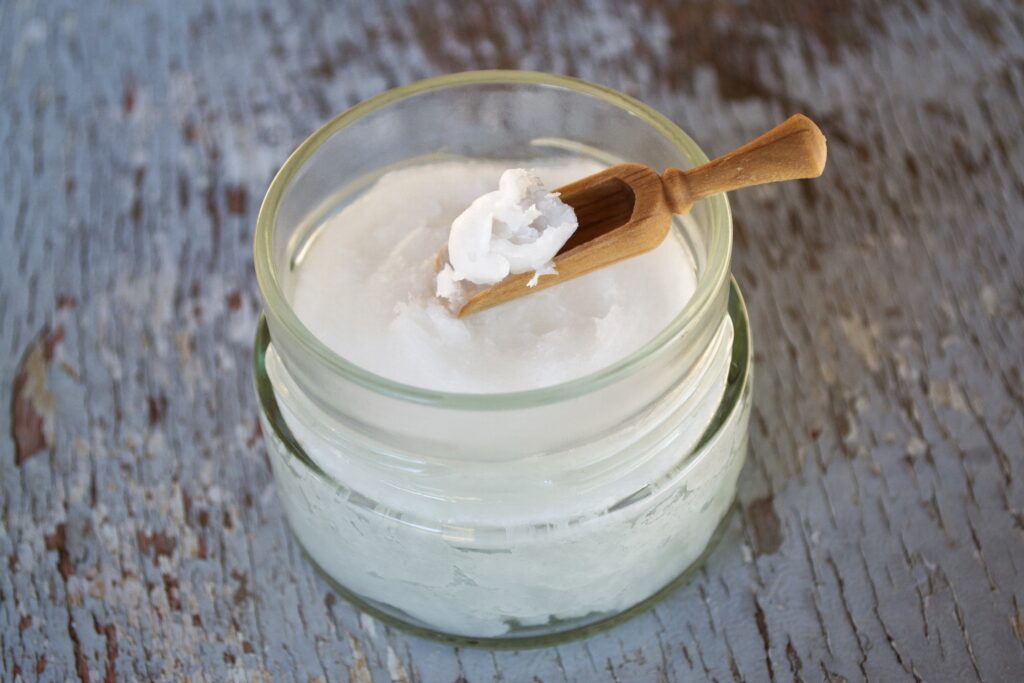
Coconut Oil
- Coconut oil is probably my favorite cooking oil because I heart coconut everything. It smells and tastes amazing, and it has so many more benefits than cooking uses.
- At room temperature, coconut oil is solid which is quite different from most oils you have in your kitchen cabinet. Just recently I learned and made the connection that it solidifies at room temperature like butter because it contains saturated fats.
- In recent past, coconut oil has received a bum rap from the American Heart Association because it contains saturated fats. Whenever I hear an organization like this or government entity pipe up about something health related, my antenna goes up. My conclusion regarding this along with other people in the clean eating arena are that their conclusions are short-sighted (see Dr. Axe’s article about this: https://draxe.com/nutrition/coconut-oil-healthy/). Again, there are good and bad fats, and eating the right kind of saturated fats (coconut has 91% healthy saturated fats) may actually be beneficial to your health. Do your research!
- Medium-chain fatty acids (MCFAs) are the superstars of coconut oil, and a big reason why this oil is so popular. Because MCFAs are smaller, they are turned into fuel for our bodies much faster than other plant-based oils which in turn means they will digest faster. They are processed through the liver versus another organ, immediately turning them into instant energy instead of going into our fat stores. MCFAs are also anti-fungal and anti-microbial which aids in gut health and good digestion.
- Since I love the taste of coconut, I always opt for brands that make organic extra virgin (unrefined) oil. The refined versions of coconut oil can still come Organic but have been processed to remove the taste of coconut (some don’t like the flavor). This is where source is important because you will need to find a refined coconut oil that is expeller pressed vs. chemically processed to remove impurities and the flavor. Unrefined vs. refined also changes the smoke point of an oil which means that when the oil gets too hot it was start to tasted bad (burnt) and can even change the chemical structure of the oil which can have negative effects.
- Coconut oil is going to be a bump in price if you are used to a store brand vegetable oil. But some great brands out that really large containers at a great price and some online companies have great discounts. Brands that I have tried and really like are Costco or Walmart’s Organic Virgin Coconut Oil and Nutiva (you can find them on Amazon or Vitacost)
Olive Oil
- This was probably my first healthy cooking oil switch, and I may have even used this before I got into healthy living. However, I am positive that if I did use it, it was a very low quality and super refined (you live an learn right?). Because olive oil has been so popular for so long, many brands have been tainted with vegetable oils and “watered-down” to make the oils cheap and profitable. However, this doesn’t mean you have to spend your whole grocery budget on an unrefined 12oz bottle of imported oil. As always, source is important and we have a great domestic brands of unrefined oil that don’t have to make a trans-Atlantic trip which could potentially damage the oil.
- Olive oil has a few vitamins and many fatty acids which are constantly active, potentially fighting bad cholesterol and inflammation. Most high quality, extra-virgin olive oil also contain antioxidants called polyphenols
- Inflammation can wreck your body in many ways which why it is important to consume foods that will help your body in that way. Now, because of olive oil’s anti-inflammatory quality it scores in helping protect your heart, weight loss/gain, diabetes, and balances your hormones. Olive oil’s fatty acids contribute to our brain health tremendously, and its amazing antioxidant supply can help prevent cancer.
- The jury is still out on whether you should use olive oil for cooking. The smoke point is extremely low for unrefined extra-virgin olive oil (although each source I have researched say a different number ranging from 200-325 degrees). So, if the one side is accurate that olive oil is toxic after being exposed to high heat, then you should use it for uncooked dishes only. If the other side is accurate that it is safe to use for cooking, then have it! Doing your research, trusting your gut and even your tastebuds could help you decide whether you want to cook with olive oil or not.
- Unrefined EVOO has a very distinct, heavy flavor that may change the way some of your dishes taste. Sometimes I want that because it enhances a sauce and other times I would rather stick with a more neutral flavor. In the kitchen, I use olive oil more for dipping sauces and salad dressings and making mayonnaise. Extra-virgin olive oil is so flavorful that it makes your dips and dressings so much more savory. And that is ALWAYS a plus!
- Great brands of EVOO to try out are Primal Kitchen, Spectrum, and Napa Valley.
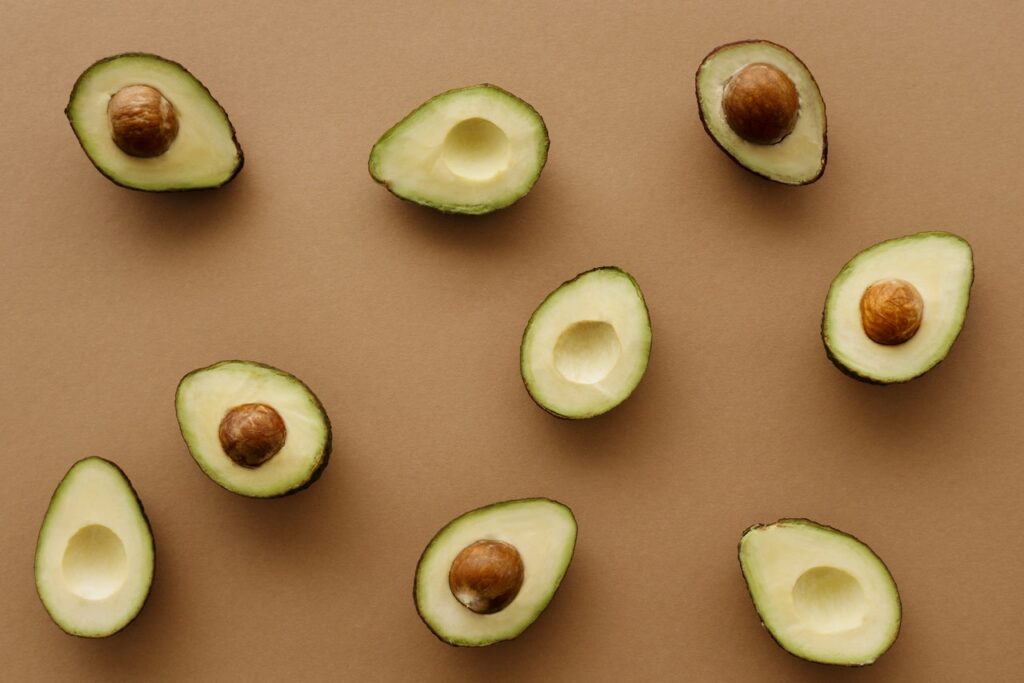
Avocado Oil
- I stumbled across avocado oil a several years ago but I didn’t use it very much. In fact, I think I bought it because it was on sale. However, not long after this I discovered the wonderful benefits avocado oil brings to the table.
- Avocado oil is incredibly nutrient dense making it a great addition for dressings and can be used for some tasty cooked dishes. Another attractive quality this oil has is its high smoke point (even in its unrefined state) so it makes for a great all around cooking oil. However, still pay attention to the pan on the stove–let’s not burn the food. Unrefined, virgin avocado oil does actually taste like avocados, and long exposure to high heat could destroy that flavor and the large amount of vitamin E it contains (in this instance, a cold-pressed, refined avocado oil may be a better choice).
- Avocados have both mono and polyunsaturated fats making it and its’ oil supremely healthy. The avocado and its’ oil are also rich in vitamin E, vitamin A, riboflavin, and thiamin. Incorporating avocado oil in your diet is a great choice because it can help lower your blood pressure, improve arthritis, assist skin ailments, and improve your heart’s health. It is also often used as an ingredient in face masks, hair treatments, and can be used to remove make up.
- Avocado oil can be found throughout grocery and online stores, but as always, source is important. Chosen Foods and La Tourangelle are brands I use regularly and both brands are committed to pure, quality products. Chosen sources their avocados from trees not sprayed with glyphosate (a very harmful pesticide) and La Tourangelle has the most amazing avocado flavor in their Delicate Avocado Oil.
Grass-Fed Butter
- I suppose this is much more of a cooking fat than an oil, but it is the fourth staple in my kitchen I use for cooking. Butter is most likely a staple in most kitchens in America or it was when we were growing up. One of my most favorite kitchen smells is cooking onions and garlic with a few tablespoons of butter. I’m also a huge Keto Coffee nut so I have some butter with coconut oil in my coffee every morning!
- The repeating theme here, again, is not all butter is created equal and source/quality matters. Grass-fed/pasture-raised butter is how all butter (therefore, cows) should be but that is a topic for another day. It’s really this simple: cows’ diet is supposed to be grass and when they eat this way, their butter ends up being more nutritious and less toxic. We are what eat and what it eats by extension.
- We have all burnt butter before and it really doesn’t take much (i.e. butter has a lower smoke point). Generally I use butter for the base of many of my dishes with some aromatics, with my morning coffee or as a topping with potato recipes. If you have dairy sensitivities, a great alternative is grass-fed ghee.
- Butter brands I regularly use are Kerrygold and Vital Farms. They are frequently on sale at my local Kroger so I will stock up when I can. What I can’t wait to try is a local farmer’s grass-fed butter and eventually, make my own!
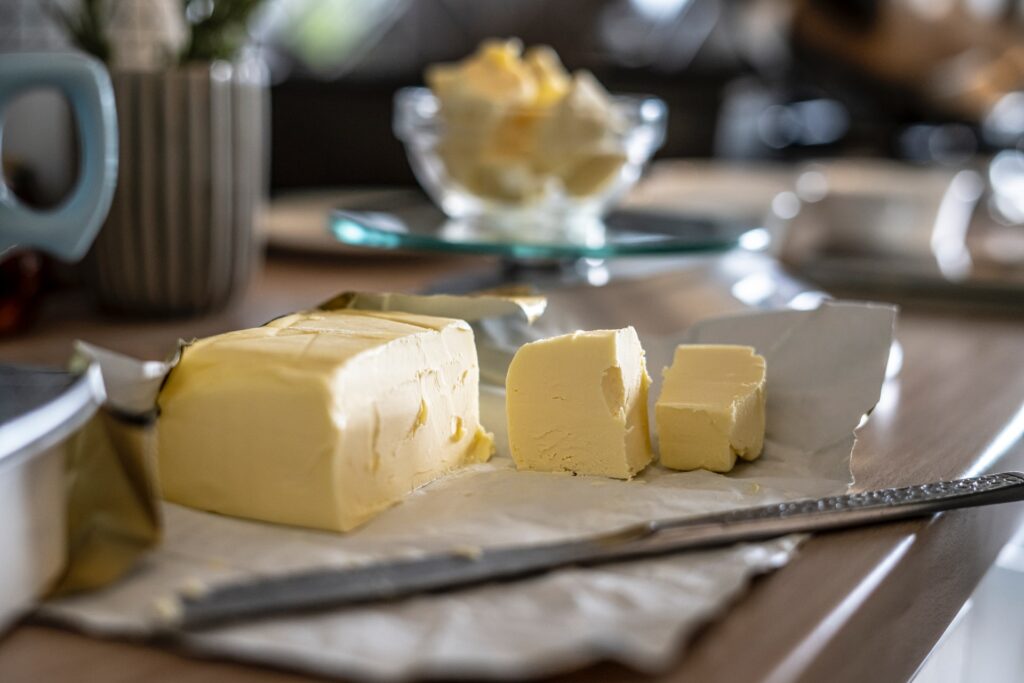
Conclusion
I hope some of my healthy fat craze has rubbed off on you or has a least peaked your interest to research the impact cooking oils can have on our bodies. These quality fats and oils are not something to be feared, but seen has another amazing tool for the body’s optimal function. AND, healthy living and nutrition doesn’t have to be boring at all–the education part is so much fun!
What are some of your favorite healthy cooking oils? Are there any healthy fats you can’t get enough of?
Ta-ta For Now,
Stephanie

